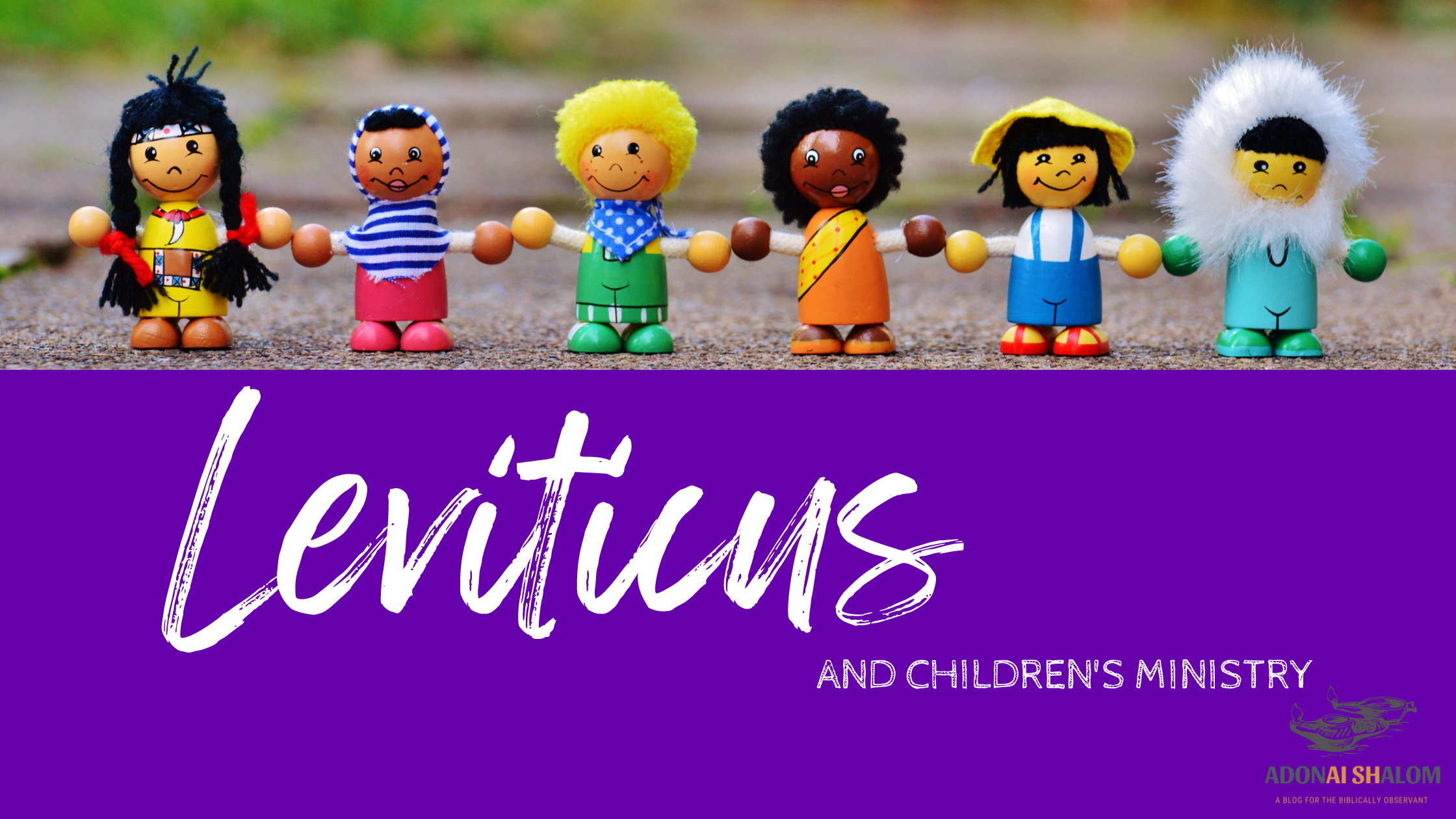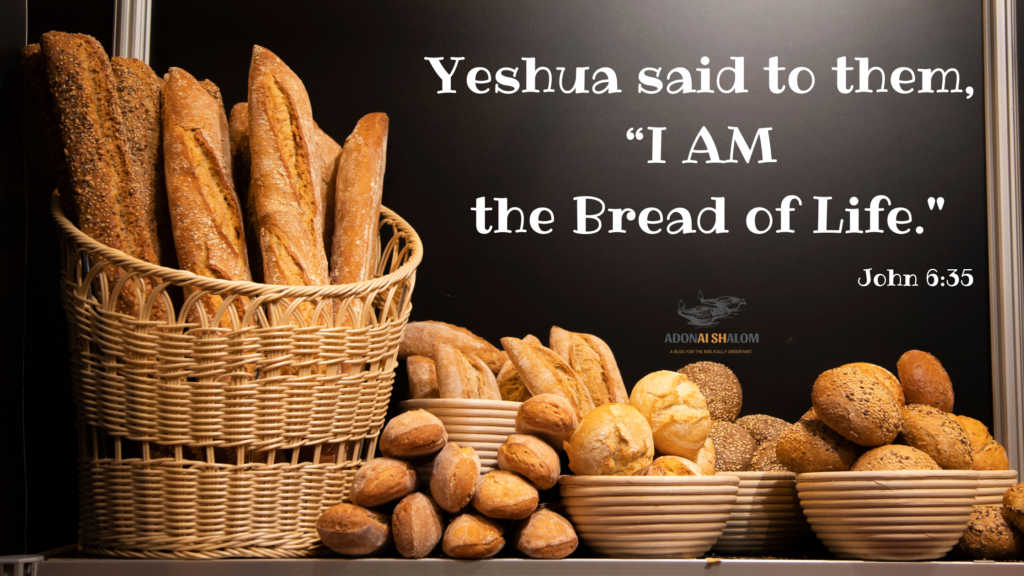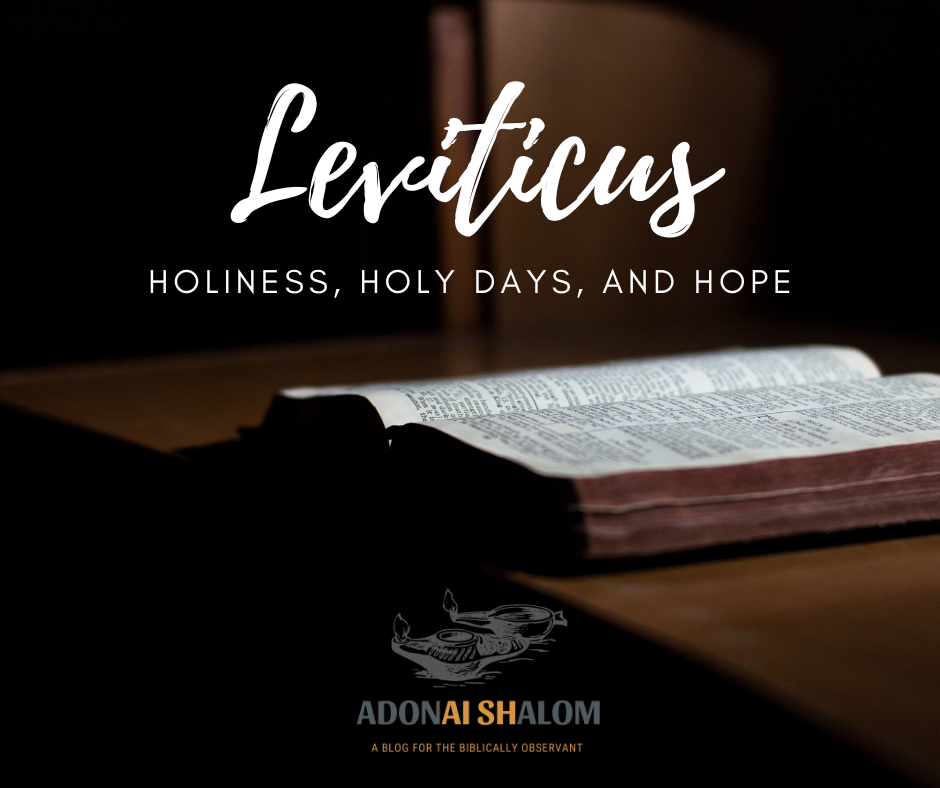
Parashat Tzav (V’yikra/Leviticus 6-8) 5782 B”H
Last week, I posed the question of whether or not you would list Leviticus among your top favorite books of the Bible.
Don’t feel bad if it didn’t make your top 10.
It’s tough to compete with the comfort of David’s Psalms,
the passion of the Gospel writers’ testimonies,
or the intensity of fire falling from heaven.
You realize fire falls from heaven quite a bit in Scripture.
Fire 🔥 at Sinai, fire 🔥 when Elijah prayed, fire 🔥in the Upper Room.
But here is a new question.
A great question for parents and children’s ministry leaders.
When introducing a young child to the Bible, would you start with Leviticus?!
I know I haven’t started with it.
I’ve always focused on the Gospel stories and the Psalms and the power of Pentecost (Shavu’ot). I love to share with them stories of Messiah Yeshua’s (Jesus’) miracles and ministry. The first verse my children memorized was Genesis 1:1. You can’t go wrong with starting at the beginning!
But did you know that it is actually fairly common in Jewish households to begin a child’s spiritual education with Leviticus?
The rationale is that because a child is pure, they ought to be taught the laws of purity. Not bad logic.
Who needs Noah’s ark sing-alongs when you can toss a list of burnt offering requirements at your three to six year olds? 🤨🤔😬
All joking aside, there’s a reason I’ve always respected the studious nature of Judaism. They don’t shy away from the hard topics. They don’t pretend that those tough passages aren’t in the Torah. And rather than run from them, they delve straight in, head-first. Master that which is difficult, and the rest will be a piece of cake. Speaking of cake, we will get to that in a moment.
There’s something we all can learn there.
Finding salvation in the pages of Leviticus
Introducing children to the concept of the sacrificial system at a young age might seem counterintuitive. Often, we want to protect children from the harsh realities of life such as sacrifice, suffering, and death. But sheltering them from these difficult concepts may actually do more harm than good. If a child gains understanding from the outset that death and life are both very much real, they can, also at a much younger age, begin to understand just how valuable the sacrifice that the LORD made for us through His death on the cross really is.
That is the goal, right? That our children would be saved, from an early age! Not through any type of manipulative techniques, but rather through honest engagement with the Word of God and related thoughtful, age-appropriate discussion.
Children ask all sorts of interesting questions. Let their curiosity be your guide.
Make connections with things your children already know. Like bread!
Bread? 🥖
Yes! Bread!
Every child in every nation eats some form of bread. From baguettes to flour tortillas to naan, bread is a staple to most people’s diets.
That’s why Messiah Yeshua (Jesus) told us He is the Bread of Life in John 6:35. He spoke in ways that are relatable! We know we need sustenance.

Kids understand the importance of eating when they are hungry. They also know they are supposed to say “please” and “thank you.”
So when you reach a passage like Leviticus 7, explain to your children how the LORD expected people to be thankful! And when they wanted to express their thankfulness and have peace with God, they would bring a special offering to the LORD – bread. And lots of it. Unleavened cakes, flour cakes, (yes, CAKE! 🎂) and leavened bread. It would be eaten by God’s representative and his family – Aaron the priest and his sons.
Leviticus 7:11-14a, Tree of Life Version
You may be more familiar with a version like the New King James Version which reads:
“This is the law of the sacrifice of peace offerings which he shall offer to the LORD: If he offers it for a thanksgiving, then he shall offer, with the sacrifice of thanksgiving, unleavened cakes mixed with oil, unleavened wafers anointed with oil, or cakes of blended flour mixed with oil. Besides the cakes, as his offering he shall offer leavened bread with the sacrifice of thanksgiving of his peace offering. And from it he shall offer one cake from each offering as a heave offering to the LORD.” (Leviticus 7:11-14a, NKJV)
Leviticus teaches honor
Leviticus 8 describes the consecration of the priests and their ordination. The offerings were brought to them – so ultimately, people were expected to honor these leaders of the Israelite community.
In American culture, the concept of “giving honor” isn’t something we talk about much.
Things like deference, submission, and putting someone else’s needs above our own aren’t real popular in a culture that emphasizes individual achievement and personal prosperity.
We don’t think to “honor” anyone who doesn’t “deserve” it.
To make matters worse, we hear of scandals in churches involving clergy and we determine that congregational leaders can’t be trusted and should not be honored. Listen, I know there is a ton of hurt there and a lot of evil that has been perpetrated in the name of faith, but we must not allow our faith and judgment to be clouded by the sinful examples. We must be wise and make sure there is accountability in every church position and structure, but we must not become overly cynical or disrespectful.
We must learn to honor, in a godly and safe manner. We must teach our children how to honor their teachers – all of those wonderful people who pour time and encouragement into their little hearts. Instead of always having to “win,” it is important to instill the value of kindness which naturally leads to honoring others.
The Bible clearly teaches that honor is something we must not only value, but give.
You can’t give something you don’t have, though.
Surely you know that you were awesomely and wonderfully made (Psalm 139:14). God chose to create you, and in so doing, He honored you so that you could in turn honor Him.
So you have to know that you are honorable. Before sin enters the calculation, your form was perfect and you have a deep inherent worth!
If you have that confidence, you should have no difficulty in submitting yourself to another with love and with kindness without losing your sense of self-esteem.
The Word of God shows us we are each responsible to learn to honor our brothers and sisters in the LORD. Children should be taught to respect and to honor their elders. Likewise as believers grow in faith, it is our duty within the family of faith to honor each other. Honoring another should not mean losing one’s autonomy and should never result in abusive relationships. Honoring ought be mutual, but we must be willing to serve even those we would rather not serve.
If we learn to honor one another, then we genuinely gain the ability to give honor to Adonai.
The fight for the souls of our children
Children’s ministries must take into account the fact that children come from so many different backgrounds and walks of life. If we water down the message and shy away from the more difficult subjects, we could be missing huge opportunities to help children. Whether a child’s perception or reality of a problem is large or small, if a ministry is there to guide them with love, kindness, and the unfailing Truth of the Word of God, the child will be receptive to the message about our wonderful Savior.
Today’s world is full of conflicting messages, ideas, philosophies, and religions. The devil is hard at work to rob our children, in so many ways. False religions work very hard to instill their values and beliefs into young people, so as believers in Messiah Yeshua (Jesus) and disciples in His Truth, how much harder ought we be working to bless our children with the knowledge of His Glorious Truth.
I’ve grown tired of the repetitive nature of most children’s ministry programs that seem to simply seek to entertain the children.
I’d rather arm them for the real world with the real armor of God. Children are smart! Let’s give them a deep and strong foundation!
Maybe even start with . . . your new favorite, Leviticus!

I hope you enjoyed this post! Let me know what you think! Is Leviticus growing on you, my friend? Please consider subscribing so you can stay up-to-date on our latest posts!

Looking for additional resources?
Looking for children’s resources?
Here are some resources that might make your personal study time more enjoyable for you or your children! I am an Amazon affiliate which means I earn a little from your purchase, but it won’t cost you more.







I love reading your articles! Thanks for another thoughtful post.❤️
Thank you for reading, and for your comment! Have a wonderful day! 🙂
I love this perspective! You’ve inspired me to teach my children at least the principles found in Leviticus! 🙂
That is so awesome! Thank you for sharing that with me. So glad this was helpful to you!!
I love this. My 11 year old daughter is reading through Leviticus. I am sharing with her. Thanks so much.
Arrica I am so glad this has been useful for you and your daughter! Blessings!! 🙂
So interesting! I always struggled with whether to include the plagues in Egypt when I taught kids. I learned my lesson about how resilient and thoughtful kids can be on the harder topics when I decided to go ahead. Thank you for this excellent study on Leviticus and your call to action to share the Gospel with our kids.
Patti, I can relate to that struggle! Some of those plagues (like the death of the firstborn) seem like a lot for children to handle! But, like you said, kids are resilient! 🙂 Thanks so much for taking the time to comment! I appreciate you, sister!
I really love this. It is so true that we shouldn’t shy away from teaching the whole counsel of God to our children, even the hard things! Yet so many of us do from time to time. One of my close friends just went through Leviticus with her 4 kids (between ages 4 and 10), and she said they really grasped a lot of it. So yes, let’s not just seek to entertain our kids with the “easy” Bible stories!
Wow! Thanks for sharing! It’s amazing what even the youngest can grasp! 🙂